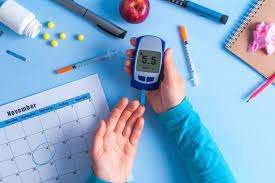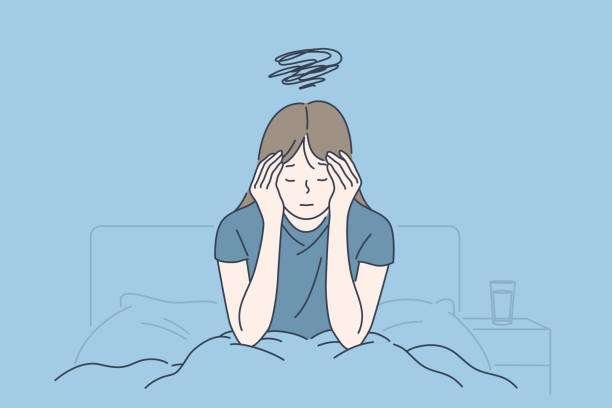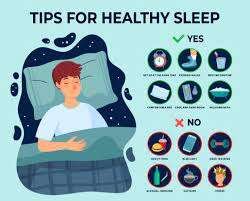
Are you feeling tired?
Experiencing excessive yawning and feeling unable to sleep all day may be due to factors such as late-night staying up, lack of sleep, or an undiagnosed medical condition, which could lead to fatigue.
Why Am I so Tired
Table of Contents
How much sleep should you be getting?
The National Sleep Foundation has established guidelines for its experts.
| Age | Amount of sleep |
| Newborns | 14–17 hours (includes naps) |
| Infants | 12–15 hours (includes naps) |
| Toddlers | 11–14 hours (includes naps) |
| Preschool-aged children | 10–13 hours |
| School-aged children | 9–11 hours |
| Teens | 8–10 hours |
| Adults | 7–9 hours |
| Seniors | 7–8 hours |
Individual needs for sleep are influenced by various lifestyle factors, including health conditions like pregnancy, illness, aging, and sleep deprivation. These factors can impact the amount of sleep needed for optimal functioning, highlighting the importance of understanding and managing sleep requirements.
Sleep is crucial for maintaining a healthy body and mind, as it helps regulate bodily functions and prevents various health issues.
- trouble with alertness
- difficulty with memory
- stress with relationships
- lower quality of life
- increased chance of car accidents
What’s causing me to be so tired?

Medical conditions can lead to weeks of exhaustion, which should be checked by a doctor if the exhaustion persists beyond a few days or weeks.
1. Iron deficiency

Iron deficiency, a condition affecting women, is a result of a lack of iron, which is crucial for producing red blood cells. Without enough iron, blood cannot supply organs with the oxygen they need for proper function. Symptoms include shortness of breath, heart palpitations, and pallor. It affects about 1 in 20 men and postmenopausal women.
2. Sleep apnea

Middle-aged men often experience sleep apnea, a condition where their throat narrows or closes for 10 seconds or more during sleep, causing difficulty breathing and frequent nighttime awakenings. This condition can cause fatigue throughout the daytime hours, snoring, and a drop in blood oxygen levels, making it more common in overweight, middle-aged men.
3. Depression

A common symptom of depression is tiredness, which can lead to difficulty falling asleep or wake up early. Other symptoms include hopelessness, anxiety, low sex drive, and aches and pains, ranging from mild to severe, affecting the individual’s ability to function and cope with the mood disorder.
4. Pregnancy

Early symptoms of pregnancy include fatigue, a missed period, sore breasts, nausea, and increased urination. These earliest symptoms can be confirmed through a doctor’s visit or an over-the-counter pregnancy test, which can help identify the presence of the hormone progesterone and other signs of pregnancy.
5. Diabetes

Diabetes, a condition characterized by excessive sugar levels in the blood, can lead to symptoms such as overtiredness, increased thirst, frequent bathroom use, and weight loss, which may require a blood test for diagnosis.
6. Underactive thyroid

A common symptom of hypothyroidism is feeling tired, which can lead to weight gain, depression, and muscle aches. These symptoms develop slowly and may not be immediately noticeable. A blood test is necessary for proper diagnosis, especially in women and older adults.
7. Chronic fatigue syndrome

Chronic fatigue syndrome (CFS) is a condition characterized by excessive tiredness and symptoms such as joint pain, sore throat, headache, and muscle or joint pain. Symptoms may persist even with good rest, affecting individuals in their early 20s to mid-40s and children aged 13-15.
8. Narcolepsy vs. being tired

Narcolepsy, a sudden sleep disorder, typically develops in individuals aged 10-25.
Symptoms of Narcolepsy include:
- In May, intense emotions trigger a sudden loss of muscle tone, causing slurred speech or general weakness, also known as cataplexy.
- Sleep paralysis occurs when you wake up from sleep, causing you to be unable to move or speak for a few seconds or minutes.
- As you wake up, you may experience hallucinations, where you wake between dreams and then experience them as reality.
9. Sleep debt

Sleep debt is a significant issue that can lead to chronic fatigue and negative health effects. It occurs when individuals don’t get enough sleep for extended periods, causing elevated cortisol levels and insulin resistance. To repay this debt, individuals can make lifestyle changes, such as sleeping extra hours on weekends or going to bed earlier at night. By addressing sleep debt, individuals can feel more rested and better equipped to handle the demands of daily life.
When to see your doctor

A doctor should be consulted if lifestyle changes and improved sleep habits are not enough. They can perform tests to identify the cause of exhaustion. A sleep diary can provide a comprehensive picture of nighttime habits, including when you sleep and wake up, the frequency of your nighttime awakenings, and any other symptoms you may be experiencing. Maintaining a sleep diary can help you understand your sleep patterns and health concerns.
Tips for better sleep

To improve sleep, follow a consistent sleep schedule, create a bedtime ritual, avoid napping, exercise daily, and fine-tune your sleep environment. A comfortable mattress should last around 10 years and be free from allergens. Avoid napping in the late afternoon, as it can disrupt nocturnal sleep.Exercise daily, even a light workout, can help you nod off more easily at night. The room temperature should be between 60 and 67˚F (16 and 19˚C), and any distractions should be addressed with blackout curtains, earplugs, or a white noise machine. Lastly, check your pillows and mattress for comfort and longevity.
Why Am I so TiredWhy Am I so TiredWhy Am I so TiredWhy Am I so TiredWhy Am I so TiredWhy Am I so TiredWhy Am I so TiredWhy Am I so Tired
